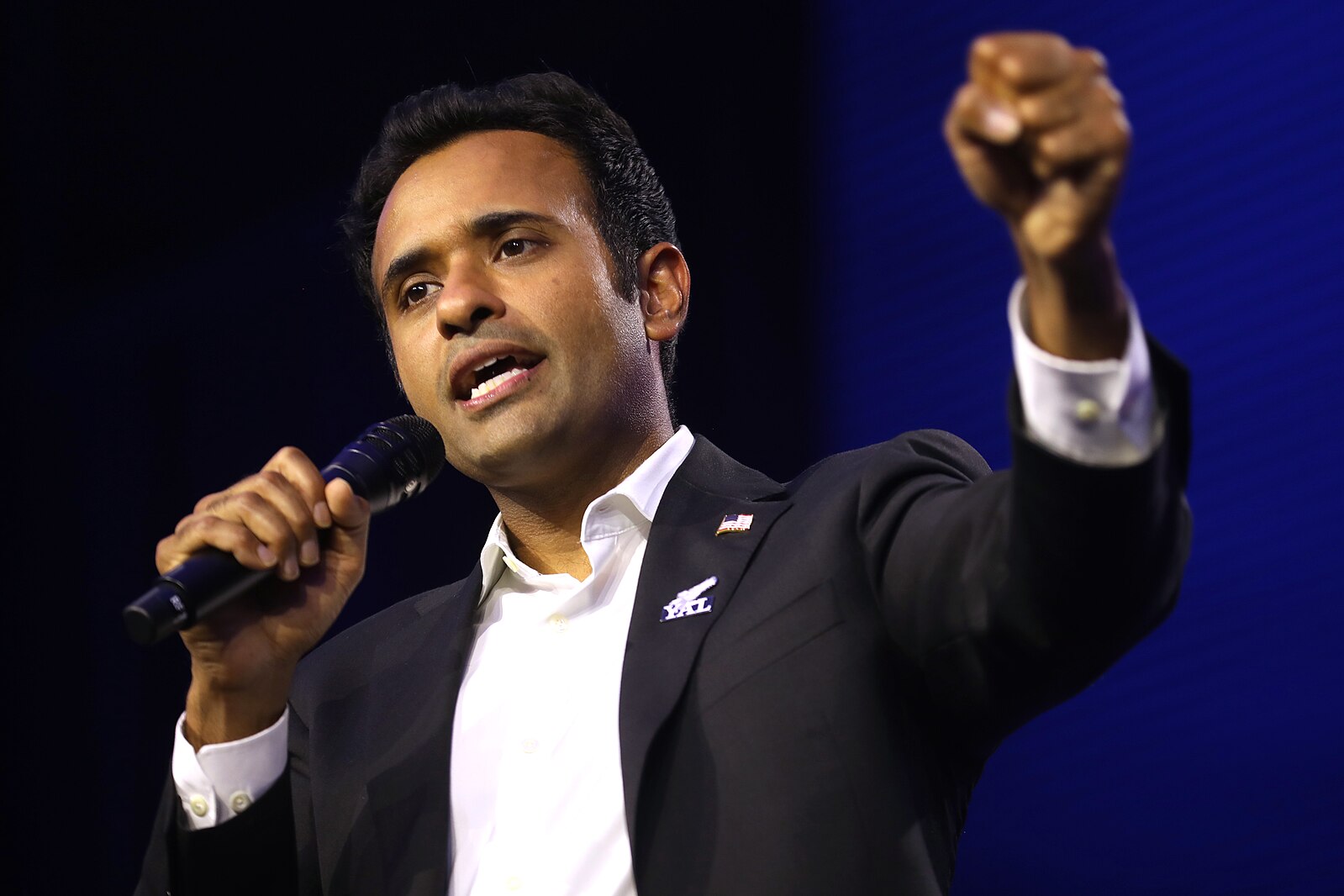Views expressed in opinion columns are the author’s own.
Since announcing his candidacy in February, Republican presidential candidate Vivek Ramaswamy has peddled dangerous, far-right myths about immigration, race and the effects they confer on us.
At Wednesday’s Republican debate, Ramaswamy called to end birthright citizenship as we know it.
In an interview, he said building a wall on our southern border wasn’t “enough,” and, in fact, that the situation required brute military force.
At a campaign stop, he equated the existence of white supremacy to unicorns. Later, he promoted a “colorblind meritocracy.”
For a Republican presidential hopeful, these ideas aren’t exactly new. Former President Donald Trump pushed similar ideas about illegal immigration, just like politicians today and in 2016.
But Ramaswamy’s rhetoric and identity as the South Asian American with one of the most influential voices in politics presents a unique, dangerous problem when it comes to dispelling myths about meritocracy or the model minority.
A core component of his messaging is Ramaswamy’s rags-to-riches tale. In this inspiring story, his engineer father and psychiatrist mother immigrated to the United States from India, setting him up to attend elite institutions and make a fortune from his pharmaceutical company.
Ramaswamy is able to frame himself as one of the “good immigrants” because his parents entered legally and became financially successful, while those who enter illegally are the “bad immigrants.” He is able to promote one sliver of the immigrant experience as the blanket, broad truth. This kind of false construction operates in the same vein as the model minority myth, which says all Asian Americans are hard-working, successful and legal, while other racial minorities are not.
These ideas are falsehoods, though.
The framing of the model minority only came about in the 1960s, when it was created as a mechanism to benefit the U.S. during its entanglements with Asia during the Cold War. In this period, it was politically advantageous for the government to cast its Asian citizens in a positive light.
Portraying Asian Americans as successful showed the democratic U.S. promised equality to communist regimes in Asia but told other minorities at home, in the midst of the Civil Rights Movement, that disobedience would be punished. Asian Americans were falsely defined as quiet and compliant with the state while Black Americans fought government-sanctioned segregation.
In the modern day, politicians and other actors employ this same logic, just applied to different situations. Maybe there isn’t a full blown civil rights movement, but some today use the model minority myth to argue it’s possible for all Black Americans to instantly overcome centuries of enslavement, housing and education discrimination through hard work alone.
Not all Asian Americans fit into the model minority myth’s high-income, high-success framework, either. Asian America, with its diversity, has the largest wealth gap of any racial group. There are also nearly 2 million undocumented Asians living in the U.S.
The realities of race, immigration and meritocracy are far more complex than Ramaswamy lets on.
But here’s the real danger: Now, this insurgent candidacy is part of our national conversation. News outlets declared him the winner of the first debate, and the public thought he performed well, too. Polls have him as a strong third choice behind Trump and Ron DeSantis.
While we’ve witnessed other Republican presidential candidates say similar things, we’ve never seen a South Asian candidate do it. Putting himself on the far-right side of this issue gives license for white Americans to peddle those beliefs too. If he can say it as a brown man, then why can’t others?
These ideas harm all immigrants and non-immigrants. The “good immigrants” are whittled down to one homogenous identity, and used as a political wedge against other groups. The “bad immigrants” and minorities already living here struggle with unequal opportunity and are contrasted against the “good” ones. White Americans absorb falsifications about what it means to be non-white in this country, and don’t gain a full understanding of systems of oppression.
Unfortunately, these myths will continue to fester so long as people like Ramaswamy push them. When minorities in positions of power buy into the very ideologies that hurt them, it makes those ideologies all the more powerful.
We come to the 2024 Republican primary in a moment rife with race-conscious conflict — where affirmative action no longer enjoys constitutional protection, and where states target diversity, equity and inclusion policies.
It only takes a presidential candidate with a national platform to exacerbate this assault. If we let it happen, then these dangerous ideas might turn into real policy.
Tara Davoodi is a sophomore government and politics major. She can be reached at tdavoodi@terpmail.umd.edu.



